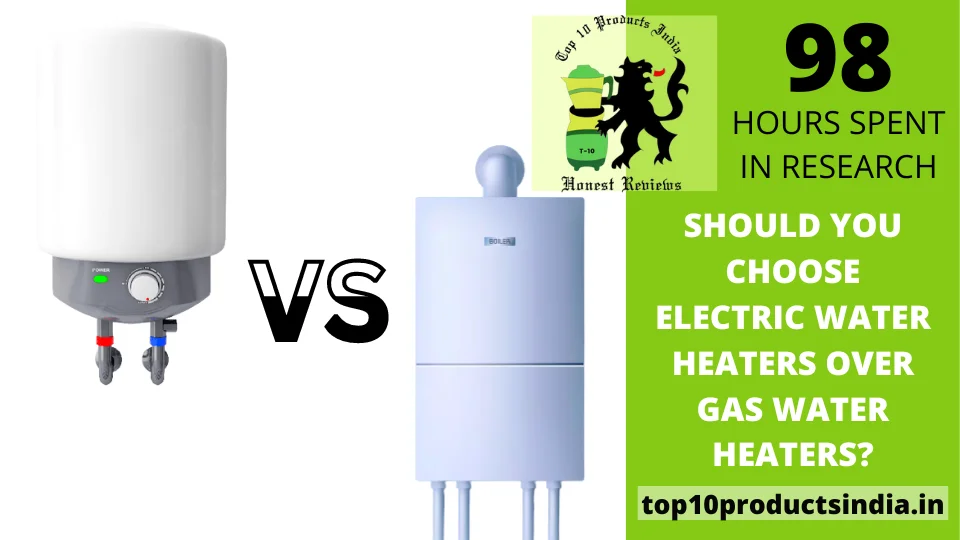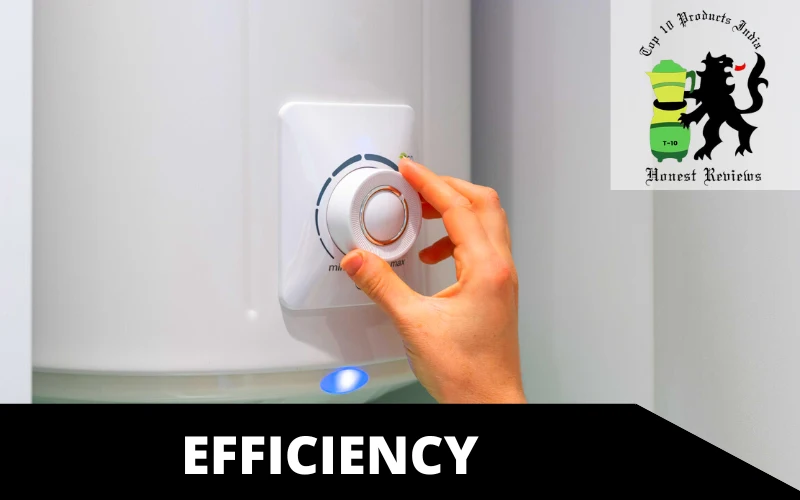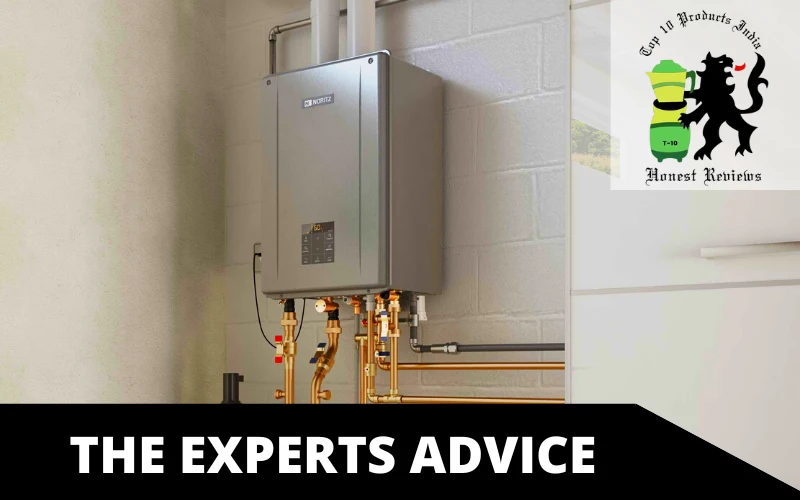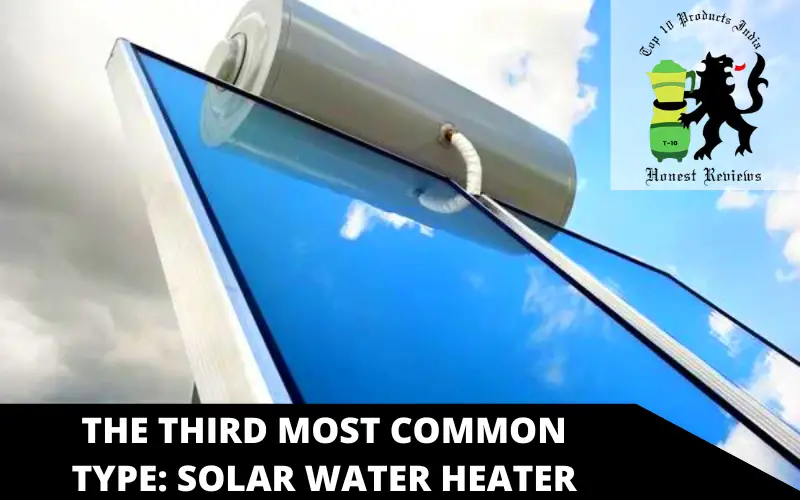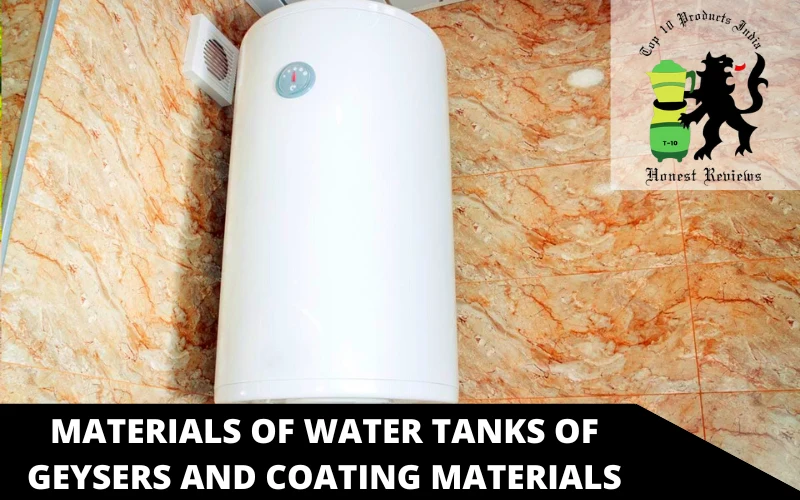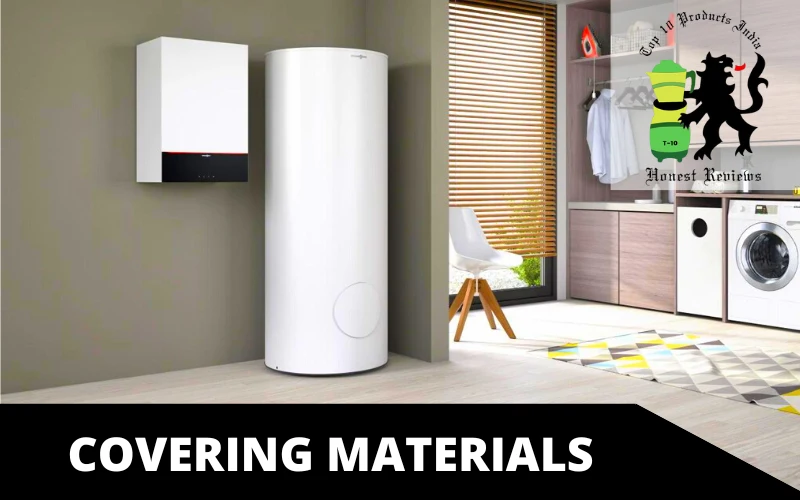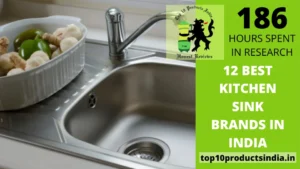Are you deciding between electric water heaters and gas water heaters? It’s an important decision, as your choice will impact your wallet and the environment. Electric water heaters require more electricity than gas-powered models, but they are generally safer because they don’t use combustion.
They are also usually less expensive to purchase and easier to maintain since many parts can be replaced instead of replacing the whole unit. On the other hand, gas models can often provide hot water faster and save energy if you regularly use large amounts of heated water.
Consider how much area you need to cover when selecting a model. Electric water heaters are typically best suited for small households, while a gas model might offer better coverage in larger homes with multiple bathrooms.
Should You Choose Electric Water Heaters Over Gas Water Heaters?
So, which geyser is the best gas or electric? Well, electric water heaters are among the most popular alternatives for house water home heating, though it can be challenging to recognize the benefits and drawbacks of installing this kind of water heater as opposed to gas alternatives.
Right here are some of the essential benefits as well as disadvantages of using an electric water heater at home:
Initial costs
When choosing between electric or gas water heaters, the initial costs can be important in decision-making. Generally, electric water heaters are less expensive upfront due to the fewer parts and ease of installation. This makes them both more affordable initially and typically costs less in maintenance and repairs down the road.
However, electricity is usually more expensive than natural gas when used for other appliances such as clothes washers and dishwashers; once you factor in energy costs for running an electric water heater, it might be a wiser choice to opt for a gas water heater instead.
Ultimately, depending on your energy supply options, budgeting needs, and geographic location, one type of water heater may cost more at first over the other. Still, with careful consideration and research into each option’s efficiency rating, you can make an informed decision that will serve your home best long term.
Efficiency
Electric water heaters are often more efficient than gas-powered ones because they use a simple heating element and tank design. This makes them easy to install and maintain and adds to the overall efficiency.
On the other hand, gas water heaters have quite a bit more mechanical elements and components that must be considered, which can negatively affect their energy efficiency.
Generally speaking, electric water heaters tend to take fewer resources to run and last longer than their gas counterparts. It’s important to consider this when deciding which type will work best for your home.
Safety and security
Gas water heaters may be more cost-efficient in the long run, but they pose a greater risk to the home and its occupants than electric ones due to potentially hazardous fumes from combustion. Because all-electric models are powered by electricity, there is no risk of poisonous gases entering living areas, making them much safer to use in populated homes.
However, users may be responsible for higher usage costs as electric models require larger energy output to heat water. It is worth weighing both options carefully before deciding which suits your family’s safety, and security needs best.
Availability
When it comes to the availability of water heating systems, the first thing to consider is where you live. Electric water heaters are a much more common choice across most countries and urban areas since they require less installation work and can be set up easily.
This has made it a popular go-to for households everywhere. On the other hand, gas water heaters are not as readily available due to their complicated set-up process and the requirement of access to a gas line from the outside.
They may be harder to come by in some suburban or rural regions, but if you have access to a gas line, the advantages of installing one tend to outweigh its availability issues.
Waiting for the negative part?
Till now, you mainly discovered that electric water heaters are a little bit much better, yet these likewise lug some disadvantages. Right here are the grounds on which the gas-operated geysers verify themselves better.
Heating time and also recovery prices: Do you invest a lot of time waiting for your shower water to heat up?
With an electric water heater, this process is likely to take much more time than with a gas water heater.
Power outrages: If the grid drops due to a storm or other occasion, you won’t have accessibility to hot water with an electric water heater.
Operating expenses: Even though an electrical water heater is the most efficient than a gas water heater, you’ll likely spend much less cash generally if heating your supply of water with gas.
The Experts Advice
Water heaters sustained by gas typically cost much less to operate on a monthly basis than electric models. As a reward, they still work when the power heads out.
Electric water heater warm water extra successfully than gas versions, however, typically have greater power prices, considering that power usually costs more than natural gas.
If a gas water heater is already in your home, there’s no requirement to switch to electric. The Indian Department of Energy’s Energy Saver website has a rather extensive guide on the subject if you desire to find out more regarding various types of water heating units. It was one of the best resources we discovered during our study regarding water heating units.
No worries, we have covered all geyser categories in this guide.
The Third Most Common Type: Solar Water Heater
A solar water heater is a type of water heating system that uses energy from the sun to heat water for use in homes or buildings. The system typically includes solar collectors, a storage tank, and pipes or tubes to transfer the heated water.
Solar collectors, typically installed on rooftops, absorb energy from the sun and heat a fluid, such as water or a glycol solution, which is then circulated through the storage tank. The storage tank is typically insulated to keep the heated water warm until needed.
Solar water heaters can be used in various climates and are particularly effective in areas with abundant sunlight. They can be an energy-efficient and cost-effective alternative to traditional water heating systems that rely on electricity or natural gas.
Types of Water Geysers on the Basis of Storage Space
Water geysers, also known as water heaters, come in various types, including those with different storage spaces. Here are three types of water geysers based on storage space:
- Tank-Type Water Heaters: Tank-type water heaters are the most common type and are easily recognizable by their cylindrical shape. These water heaters have a tank that holds and heats a certain amount of water. When hot water is used, the tank is refilled with cold water, which is then heated by the heating element. Tank-type water heaters come in various sizes, ranging from 20 to 100 gallons, and are typically powered by electricity, natural gas, or propane.
- Tankless Water Heaters: Tankless water heaters, also known as on-demand water heaters, do not have a storage tank but heat water as needed. When a hot water tap is turned on, cold water flows through a heating element, which quickly heats the water before it is delivered to the faucet or showerhead. Because they don’t have a storage tank, tankless water heaters take up less space and are often more energy-efficient than tank-type water heaters. They are typically powered by natural gas or electricity.
- Heat Pump Water Heaters: Heat pump water heaters use electricity to move heat from the air or ground to heat water. They work similarly to air conditioners but in reverse. Heat pump water heaters have storage tanks, but they are more energy-efficient than tank-type water heaters because they use less electricity to heat the water. They are particularly effective in warm climates and can be used with solar panels to reduce energy costs.
When choosing a water geyser, it’s important to consider your hot water needs, budget, and space availability. Tank-type water heaters are a good option for larger families or those with high hot water demands, while tankless water heaters are ideal for smaller households or those with limited space. Heat pump water heaters are a good choice for those looking for an energy-efficient option.
Materials of Water Tanks of Geysers and Coating Materials
Water tanks of geysers, also known as water heaters, can be made of various materials, including copper, stainless steel, and glass-lined steel. Additionally, the tanks may be coated with materials to prevent corrosion and extend their lifespan. Here are some common materials used for water tanks and coating materials:
- Copper: Copper is a popular material for water heater tanks because of its excellent thermal conductivity, allowing quick and efficient heat transfer. However, copper tanks can be expensive and may not last as long as tanks made of other materials.
- Stainless Steel: Stainless steel is a durable and corrosion-resistant material commonly used for water heater tanks. It is more expensive than some other materials, but it is known for its longevity and ability to withstand high temperatures.
- Glass-Lined Steel: Glass-lined steel tanks are made of a steel core coated with a glass layer. This coating protects the steel from corrosion and extends the tank’s life. Glass-lined steel tanks are relatively affordable and can last for many years.
- Polymer-Lined Steel: Polymer-lined steel tanks have a steel core coated with a polymer layer. This coating protects the steel from corrosion and is known for its longevity and durability.
In addition to tank materials, coatings protect the tanks from corrosion and extend their lifespan. Here are some common coating materials used for water heater tanks:
- Glass: Glass coatings are commonly used for water heater tanks because they are highly resistant to corrosion and do not react with hot water. They are also easy to clean and maintain.
- Epoxy: Epoxy coatings are popular for their durability and ability to protect against corrosion. They are commonly used for steel tanks and can be applied in multiple layers for protection.
- Ceramic: Ceramic coatings are known for protecting against corrosion and high temperatures. They are commonly used for tanks exposed to harsh environments and require extra protection.
Covering materials
The covering material of a water geyser is essential in protecting the tank from corrosion and extending its lifespan. Here are some common covering materials used for water geysers:
- Glass Coating: Glass coating is a popular covering material for water geysers because it is highly resistant to corrosion and does not react with hot water. It is also easy to clean and maintain.
- Porcelain Enamel Glass Lining: Porcelain enamel glass lining is another popular covering material for water geysers. It is a glass-based material that is highly durable and resistant to corrosion. Porcelain enamel glass lining also provides an attractive finish to the tank.
- Blue Silicon Enamel Coating: Blue silicon enamel is a high-quality coating that protects against corrosion. It is known for its durability and resistance to high temperatures.
- Vitreous Enamel Coating: Vitreous enamel coating is a glass coating that protects water geyser tanks from corrosion. It is highly corrosion-resistant and provides an attractive finish to the tank.
- Polymer Coating: Polymer coating is a newer type of covering material that protects water geyser tanks from corrosion. It is made of a polymer-based material that is highly durable and resistant to high temperatures. Polymer coatings are also easy to clean and maintain.
The covering material of a water geyser is crucial in protecting the tank from corrosion and extending its lifespan. Glass coating, porcelain enamel glass lining, blue silicon enamel coating, vitreous enamel coating, and polymer coating are some of the most common covering materials used for water geysers.
Choosing a high-quality water geyser made with quality covering materials is important to ensure its longevity and effectiveness.
Conclusion
Ultimately, whether to use an electric or gas water heater comes down to many factors, such as energy costs and efficiency ratings. Electric water heaters are more cost-effective overall and can be installed almost anywhere with access to electricity.
Gas-powered water heaters take up significantly less space than electric ones and are generally the preferred option in areas where natural gas is readily available.
Before making a final decision on what type of water heater best fits your needs, be sure to factor in all elements, such as installation costs, running costs, and future maintenance, when considering electric vs. gas models.

